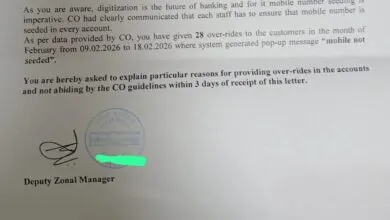Top 10 Nations with the Largest Gold Reserves

Gold has been a symbol of wealth and power for centuries. Its rarity and value have made it highly revered, and even today, gold plays a crucial role in global economies. Central banks across the world hold vast amounts of gold as a means of stabilizing their economies and protecting against inflation. These reserves act as a financial safety net, offering security and confidence during economic uncertainties. By accumulating gold reserves, nations strategically ensure economic stability and safeguard against fluctuations in currency values. Let’s take a look at the top countries with the largest gold reserves, showcasing their commitment to maintaining strong financial systems.
The United States: Leading the World in Gold Reserves
The United States holds the largest gold reserves in the world, with a total of 8,133 metric tons. Most of this gold is stored at the famous Fort Knox in Kentucky, with additional reserves held at the Federal Reserve Bank of New York and other locations. The U.S. has maintained its gold reserves at a stable level since the 1970s, reflecting its economic strength and stability. The estimated value of these reserves exceeds $480 billion, making them a significant national asset.
Germany: A Pillar of Economic Stability
Germany holds the second-largest gold reserves globally, with 3,355 metric tons. The majority of Germany’s gold is stored in Frankfurt, while some reserves are kept in New York and London. The Bundesbank, Germany’s central bank, began repatriating gold from foreign locations in 2013 to ensure better control and security, a process completed by 2017. Germany’s gold reserves, valued at approximately $198 billion, are crucial to the country’s financial stability.
Italy: A Safeguard Against Economic Instability
Italy ranks third in gold reserves, holding 2,452 metric tons. Managed by the Banca d’Italia, these reserves are primarily stored in Rome. Despite facing economic challenges, Italy has maintained its gold reserves, valued at around $145 billion, as a critical asset. This gold serves as a buffer during times of economic uncertainty, helping to protect the nation’s financial stability.
France: A Long History of Gold Accumulation
France holds 2,437 metric tons of gold, making it the fourth-largest holder of gold reserves. The Banque de France oversees these reserves, which are stored in Paris. With a value of approximately $144 billion, France’s gold reserves are a vital part of its financial system. The country has a long history of gold accumulation dating back to the 19th century, reflecting its commitment to economic stability.
Russia: Strengthening Economic Sovereignty
Russia’s gold reserves total 2,299 metric tons, placing it fifth globally. Over the past decade, the Central Bank of Russia has been actively increasing its gold reserves, with most of the gold stored within the country. Valued at around $136 billion, Russia’s gold reserves are part of a broader strategy to reduce reliance on the U.S. dollar and enhance economic sovereignty.
China: Diversifying and Securing Wealth
China holds 1,948 metric tons of gold, ranking sixth in the world. Managed by the People’s Bank of China, these reserves are stored across various locations within the country. Valued at approximately $115 billion, China has steadily increased its gold holdings as part of its strategy to diversify foreign exchange reserves and strengthen financial security. China’s growing gold reserves reflect its rising economic power.
Switzerland: A Global Financial Hub
Switzerland holds 1,040 metric tons of gold, making it the seventh-largest holder of gold reserves. The Swiss National Bank manages these reserves, which are stored in locations including Zurich. Valued at around $61 billion, Swiss gold reserves play a significant role in maintaining the country’s economic stability, further bolstered by Switzerland’s reputation as a global financial hub.
Japan: Steady Reserves for Stability
Japan’s gold reserves total 846 metric tons, placing it eighth on the list. Managed by the Bank of Japan, these reserves are stored in Tokyo and other locations. Valued at approximately $50 billion, Japan’s gold reserves have remained steady over the years, serving as a hedge against economic uncertainties and providing stability to the country’s financial strategy.
India: A Deep Connection to Gold
India holds 801 metric tons of gold, ranking ninth globally. The Reserve Bank of India manages these reserves, which are stored in Mumbai and other locations. Valued at around $48 billion, India’s gold reserves reflect the country’s deep cultural and historical connection to gold. These reserves are crucial for maintaining economic stability and serve as a safeguard against financial crises.
The Netherlands: Ensuring Control and Security
The Netherlands holds 612 metric tons of gold, placing it tenth in the world. De Nederlandsche Bank oversees these reserves, stored in Amsterdam and other locations. Valued at approximately $37 billion, the Netherlands has been repatriating some of its gold from foreign locations to ensure better control and security. Dutch gold reserves are a vital component of the nation’s financial system, providing stability and confidence.
Turkey: A Nation Embedded in Gold
In the second quarter of 2024, Turkey’s gold reserves reached a record high of 584.93 metric tons. Gold has deep roots in Turkey’s culture, tracing back to ancient Lydia, where it was used as coins. Today, gold plays a significant role in Turkey’s economic growth, symbolizing wealth and tradition. The metal is commonly worn during weddings and other joyous occasions, reflecting its cultural importance. Turkey’s gold reserves are a key asset for the nation, contributing to its economic resilience.
These nations, through their significant gold reserves, demonstrate a strong commitment to maintaining economic stability and safeguarding against global financial uncertainties.
